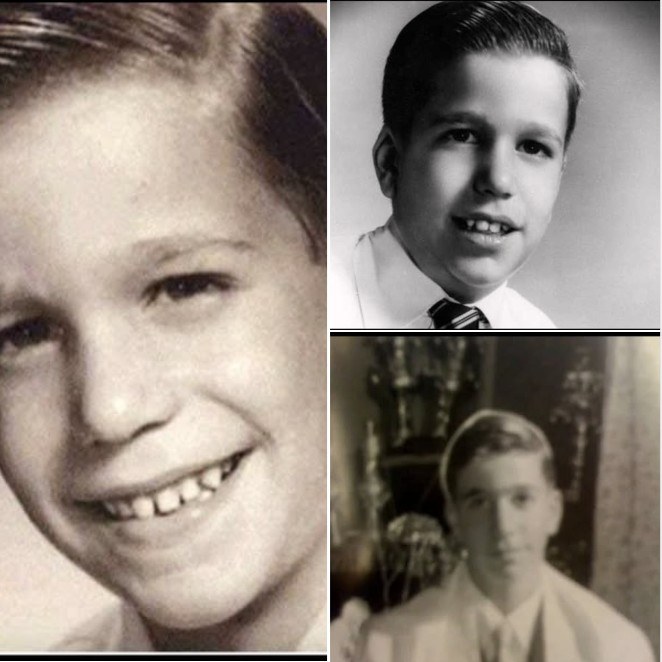Henry Winkler’s journey to success is not one of privilege or effortless talent, but of determination, misunderstanding, and eventual redemption. The man adored by millions as Arthur “The Fonz” Fonzarelli on Happy Days spent much of his childhood convinced he was unintelligent. For years, he carried the emotional scars of that misconception—until a diagnosis at age thirty-one revealed the truth. That revelation transformed his life and later inspired countless children who recognized themselves in his struggles.
Born in 1945 to German-Jewish parents who had escaped Nazi persecution before World War II, Winkler grew up in a household that valued education above all. Arriving in America with little more than knowledge and the belief that success came through hard work, his parents held school in the highest regard. So when young Henry returned home with poor grades and confusion, their disappointment was harsh.
“They thought I was lazy,” Winkler shared with The Yale Center for Dyslexia & Creativity. “I was called lazy, I was called stupid, I was told I was not living up to my potential.” He recalled his father’s frequent admonitions: “If you would only apply yourself!” But no matter how hard he tried, the words on the page simply wouldn’t make sense.
During the 1950s and 60s, dyslexia was not widely understood. There was no explanation for why a bright, articulate boy could struggle to read and write. For Winkler, every assignment was a challenge, every report card a reminder of his perceived failure.
He attempted everything—studying longer, copying classmates, memorizing pages without understanding them—but nothing worked. “They thought if I sat at my desk long enough, I’d finally get it,” Winkler recalled. “So I spent a lot of my teenage years grounded.” While other kids attended dances and football games, Henry remained in his room, staring at pages that might as well have been written in a foreign language.
Yet his imagination thrived. Performing became his refuge. Acting allowed him to transform into anyone, even briefly escaping the label of “stupid.” Comedy, improvisation, and the stage became places where he felt capable and alive.
Against the odds, Winkler was accepted into Yale University’s drama program and ultimately earned an MFA. He had achieved more than he or anyone else imagined. Still, the struggle continued—he could not read scripts like others. He improvised, relying on memory and instinct. “I never read anything the way it was written,” he admitted. “I would memorize what I could, fake the rest, and hope no one noticed.”
This inventive approach became his greatest strength. When auditioning for “The Fonz,” he improvised on set, adjusting dialogue to match his timing and charm. The producers loved it, and the character became one of television’s most iconic.
Behind the swagger, however, was a man still haunted by past shame. “I embarrassed myself for ten years doing table reads,” Winkler said. “Every Monday, we’d read scripts in front of producers, directors, the entire cast—and I stumbled over every word.”
In his early thirties, an unexpected revelation arrived. His stepson displayed similar struggles in school and was diagnosed with dyslexia. Suddenly, Winkler understood his own childhood difficulties.
“I went, ‘Oh my goodness. I have something with a name,’” he said. For the first time, he realized his challenges were not his fault. He wasn’t lazy or stupid—he simply processed language differently.
That insight was powerful, and also painful. “I got very angry,” Winkler admitted. “All of the punishments, the yelling, the grounding—they were for nothing. I wasn’t broken. I was just different.”
Instead of letting that anger consume him, he transformed it into action. He became an advocate and a voice for children who felt misunderstood and defeated.
In 2003, Winkler partnered with author Lin Oliver to create Hank Zipzer: The World’s Greatest Underachiever, a children’s series inspired by his life. The protagonist, Hank, is a bright, funny, and creative boy with dyslexia who refuses to let it define him. Winkler dedicated himself to reaching children who felt the same shame he once endured.
“I get letters from children all over the world,” he said. “They write things like, ‘I didn’t think I was smart until I read your book,’ or ‘I finally feel like someone understands me.’” Winkler personally replies to every letter: “Your learning challenge will not stop you from meeting your dream. Only you can stop yourself.”
The series was a success and later adapted into a UK television show, with Winkler playing a teacher. What began as personal struggle became a legacy of encouragement.
Even now, dyslexia presents daily challenges. Reading scripts, documents, or instructions can be exhausting. But Winkler has developed strategies—using audiobooks, colored overlays, and technology. He sees his dyslexia not as a limitation, but as a source of creativity and resilience. “It forced me to be resourceful, to think differently,” he said.
Winkler has received numerous awards for acting, writing, and advocacy, including Emmys, Golden Globes, and a star on the Hollywood Walk of Fame. Yet he values connection above accolades.
“Outside of my family,” he said, “my proudest achievement is the books. Because I know what it feels like to think you’re not enough—and I know what it means when a child finally realizes they are.”
Now in his late seventies, Henry Winkler stands as a testament to perseverance, empathy, and self-discovery. His life shows that intelligence is not measured by grades, but by how we respond when misunderstood.
He spent decades thinking he was a failure, only to learn he was uniquely wired. In doing so, he gave countless others permission to believe in themselves.
As he puts it: “Your challenge doesn’t define you. Your determination does.”
